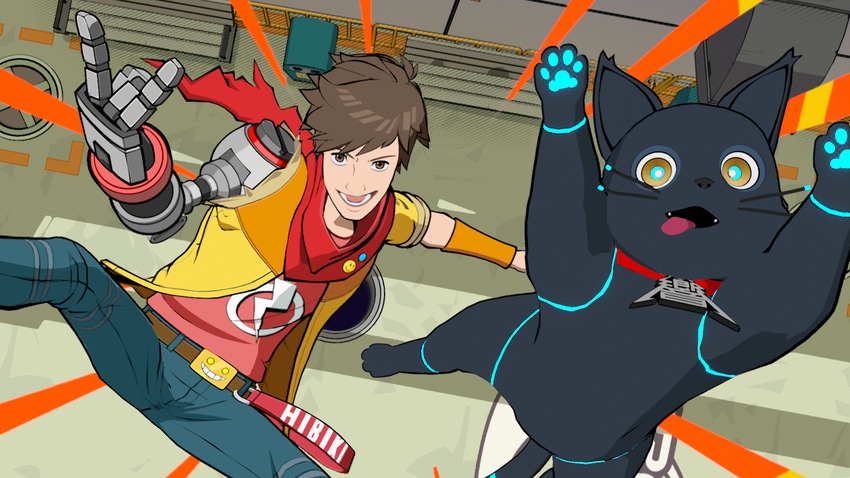Hi-Fi Rush devs on making an "over the top" rhythm action game
Behind the music (action) game.

"An action game where everything that you do matches with the music and creates a living soundtrack. [...] I pressed it as being, 'I know it’s stupid, and it’s self-aware and we’re going to play with that. And it’s going to be fun because of that.'"--Hi-Fi Rush director John Johanas
In a year of busy releases, Tango Gameworks' Hi-Fi Rush became an unexpected scene stealer with its shadow drop in January. On Xbox Wire, a number of key staff, including director John Johanes and lead programmer Yuji Nakamura, reminisced about the development of the rhythm action game.
As Johanas recalled, Bethesda was taking pitches for projects that could be made alongside 2022's Ghostwire Tokyo. He'd always had an idea of an action game where everything matched up with the music to create "a living soundtrack," an idea Tango staff reacted positively to.
On paper, the concept makes sense. But Johanas and Nakamura understood it had to be seen to be truly believed, so they spent a year making a prototype that both say is fairly unchanged from the finished game.
"It was very clear to me that John had something in his mind that he wanted to create," noted Nakamura. "That trust really started to build because he didn’t change his thinking regarding what he was trying to achieve."
Compared to other Tango games like Ghostwire and the Evil Within games, Hi-Fi Rush is a notable departure, something its own trailer pointed out. Despite that, lead audio director Shuichi Kobori and art director Keita Sakai called Johanas and Nakamura's work something they couldn't help but be excited to work on.
"It felt like we were going to go to some new playgrounds," wrote Sakai. "I saw it as a challenge that would be thrilling."
"As we started seeing John and Nakamura-san iterating on their work," continued Kobori, "people tended to gravitate toward that creative excitement. The strength of the creativity there helped bring in a lot of people."
For Johanas, he wanted this to be a significant departure from Tango's previous work. How to achieve that? By making the game as silly and splashy as possible.
"I want this to be a game that you remember," he said. "Our game is ridiculous, it’s over the top, and it’s about music. [...] Let’s go crazy with ideas as well, because you could do whatever you want and it’s like a comic book world."
Hi-Fi Rush's journey from shadow drop to breakout hit
Tango released Hi-Fi Rush the day it was announced at the Xbox Developers showcase. But according to Johanas, the day one drop was fairly last minute, and it would've had a slightly more staggered rollout had things gone differently.
"We wanted a very short campaign," he revealed. "Realistically, we wanted something like 3 months. [...] But then we just could not find a good time to make it feel like it wouldn’t get overshadowed by anything else."
Both Nakamura and Sakai had never done shadow drops before, and called it "exciting" to see reactions play out in real time. Kobori considers it a point in the game's favor, calling it "better explained by actually having the person play the game rather than explaining or presenting features."
"When it came out, it was all a lovely surprise," continued Saka, "because you don’t have any information of that ad campaign and so there was that kind of strangely nostalgic feel to it."
Those who've gotten on board with Hi-Fi Rush have called it a fun throwback to PlayStation 2 and Xbox games, which Johanas said was the point of it all. The game was a passion project that he hoped would land with others that may have had a similar desire they didn't know they had.
"It was really a game made for me," he admitted. "But if I think if this game is made for me, then there’s probably a lot of people who also will also resonate with this idea."
The full retrospective on Hi-Fi Rush, which also dives into the creation of its music and gameplay, can be read here.
About the Author(s)
You May Also Like













